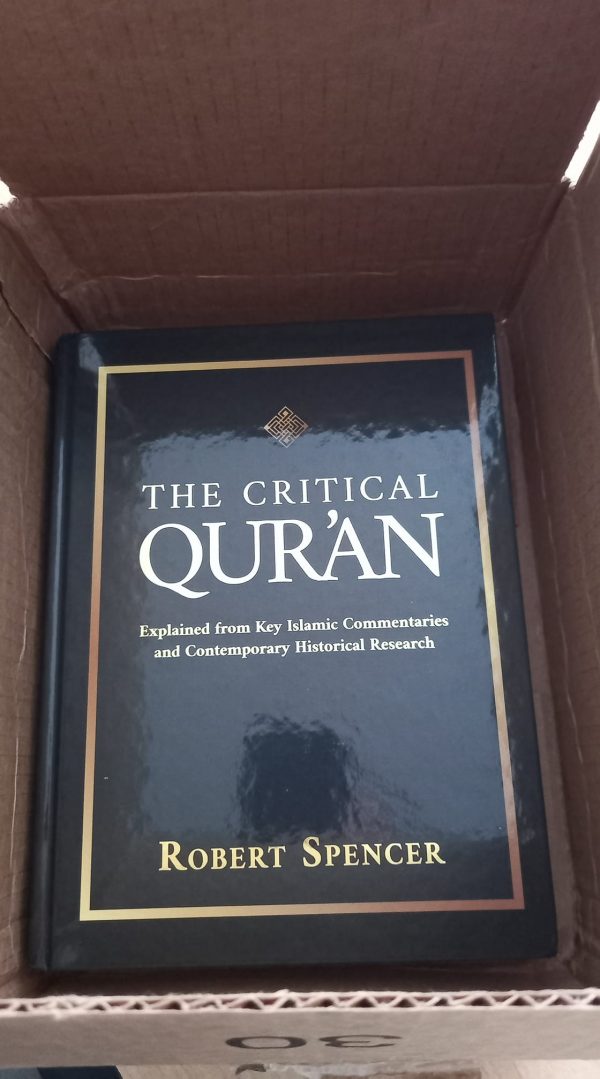The Critical Quran isn’t at all critical of the Quran, or Muslims, and especially not in a David Wood or Apostate Prophet sense. The Critical Quran does, however, follow a style established by Christian and Jewish commentators on their own scriptures. This is a very harmonious book. Robert Spencer provides a clear English translation of the text, explained by footnotes selected from various historical, and one or two modern, scholars from traditional trusted Islamic sources.

That The Critical Quran isn’t only not critical of Muslims, but features almost exclusively their own commentators as commentary, may be disappointing to those expecting anti-Muslim ammunition.
Instead The Critical Quran will be most useful to Muslims attempting to harmonise the differences of opinions within their own sects. This Quran provides a wealth of historical information from the early sources that justify modern Islamic interpretations of their sacred scriptures. The depth of this historical context allows the reader to see how interpretations of their scriptures have changed over time. This is a recommended read for Muslims seeking harmony with their heritage.
Because this is a new English translation, Spencer also provides his reasoning for differences to other English translations in each case. Interestingly, he has found his translations frequently align with some lesser published earlier English translations.
Not every verse is treated equally in the footnotes. An entire passage may have barely a line of footnote, while a few lines of a single verse may have over a page of footnotes. While we have not yet checked every single footnote, it does not appear that Spencer quotes from any of his own previous works on this subject. Where a passage may be unclear, Spencer does not try to bring in any of his own new ideas, but simply provides the commentary of others, who frequently have said the same thing when reading those passages. God only knows.
The most frequently quoted Islamic commentary cited in this work appears to be that of Ibn Kathir (d. 1372) and the Tafsir al-Jalayn from a century later. These sources are balanced out with Bukhari and other hadith writers along with Maldudi and Maldani from the 20th century.
Our only useful addition would be to have the chapter numbers at the tops of each page.
This harmonisation of the Muslim sources will leave the reader with a clear view of what Muslims themselves can do to make Islam, and the Middle East, peaceful once more.
The Critical Quran, 560 pages, by Robert Spencer is available on Amazon.
Robert Spencer has previous written over 20 books, including Did Muhammad Exist? An inquiry into Islam’s Obscure Origins.

